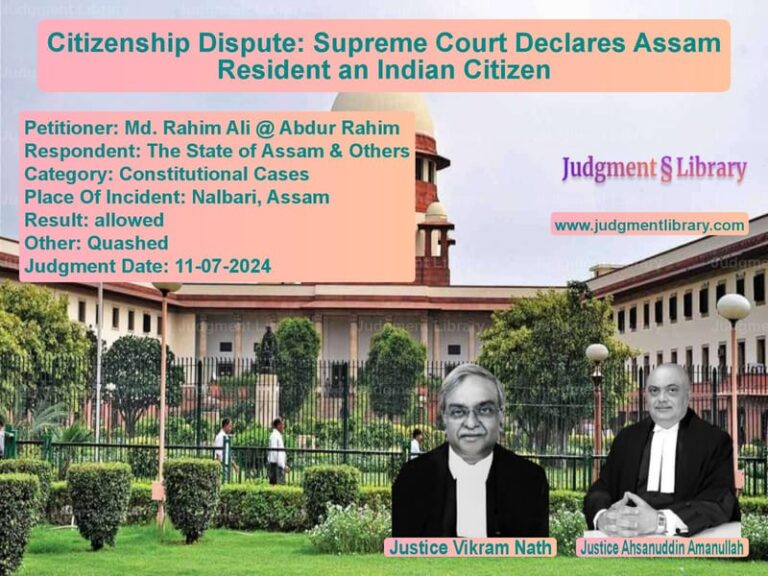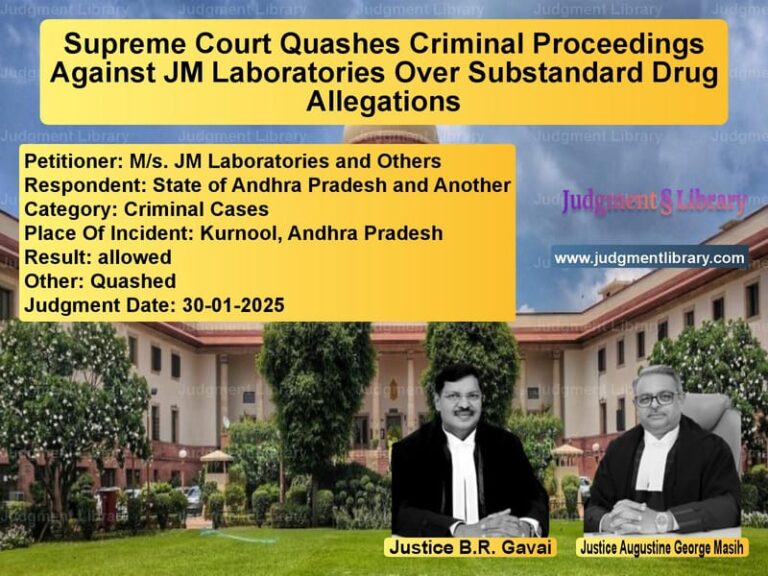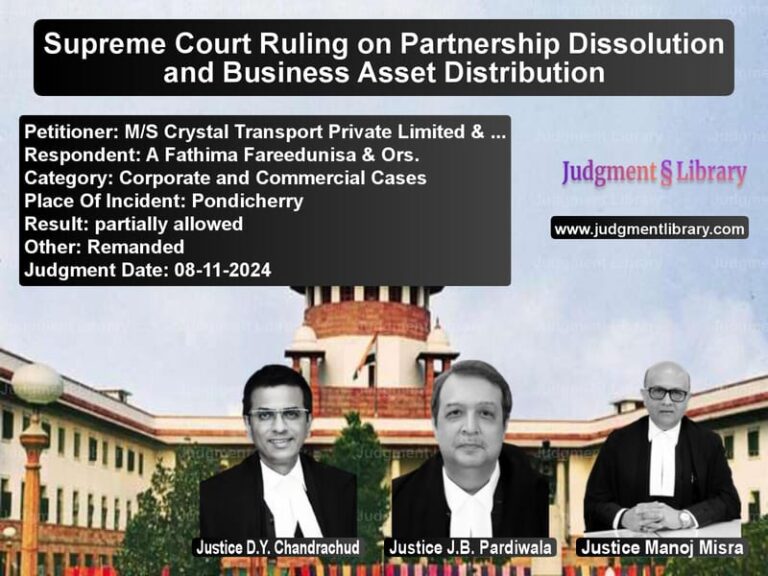Supreme Court Reverses Conviction in Cheque Dishonour Case: Key Legal Analysis
The Supreme Court of India recently delivered a significant judgment in the case of N. Vijay Kumar versus Vishwanath Rao N., setting aside the conviction under Section 138 of the Negotiable Instruments Act, 1881. The case revolved around a disputed cheque of Rs. 20 lakhs, which was allegedly issued as security for a loan. The judgment provides critical insights into the legal presumptions under Sections 118 and 139 of the N.I. Act and the standard of proof required to rebut them.
The factual background of the case dates back to 2008 when the appellant-accused, N. Vijay Kumar, issued a cheque for Rs. 20 lakhs to the respondent-complainant, Vishwanath Rao N., as part of a loan agreement for a film production. The cheque was dishonoured due to insufficient funds, leading to legal proceedings under Section 138 of the N.I. Act. The Trial Court initially acquitted the accused, but the High Court reversed this decision, convicting the accused and imposing a penalty of Rs. 22 lakhs.
The Supreme Court, in its judgment, meticulously analyzed the evidence and legal principles. The Court noted that the accused had raised a probable defence by asserting that the cheque was issued as security for a smaller loan of Rs. 3.5 lakhs, which had already been settled through a Memorandum of Understanding (MoU) in 2008. The accused also filed a police complaint alleging the misuse of the cheque. The Court observed that the complainant failed to provide substantial evidence, such as income tax records or account books, to prove the existence of the alleged loan.
One of the key arguments from the judgment is the Court’s emphasis on the rebuttable nature of the presumptions under Sections 118 and 139 of the N.I. Act. The Court reiterated that while these presumptions favour the holder of the cheque, the accused can rebut them by presenting a probable defence. The standard of proof for such rebuttal is ‘preponderance of probabilities,’ not beyond a reasonable doubt. The Court cited several precedents, including Rangappa v. Sri Mohan and Kumar Exports v. Sharma Carpets, to underscore this principle.
The Supreme Court also highlighted the contradictions in the evidence presented by the complainant and the lack of corroborative documents. The judgment stated, ‘The complainant has failed to discharge the burden once it had shifted back upon him, with the accused having discharged the burden of Sections 118 and 139 of the N.I. Act.’ Consequently, the Court set aside the High Court’s judgment and restored the Trial Court’s order of acquittal.
This judgment serves as a crucial reminder of the importance of maintaining proper documentation in financial transactions and the legal safeguards available to individuals accused of cheque dishonour. It also clarifies the evidentiary standards required to rebut statutory presumptions, ensuring a fair balance between the rights of complainants and accused parties.
Petitioner Name: N. Vijay Kumar.Respondent Name: Vishwanath Rao N..Judgment By: Justice PANKAJ MITHAL, Justice SANJAY KAROL.Place Of Incident: Bengaluru, Karnataka.Judgment Date: 22-04-2025.Result: allowed.
Don’t miss out on the full details! Download the complete judgment in PDF format below and gain valuable insights instantly!
Download Judgment: n.-vijay-kumar-vs-vishwanath-rao-n.-supreme-court-of-india-judgment-dated-22-04-2025.pdf
Directly Download Judgment: Directly download this Judgment
See all petitions in Cheque Dishonour Cases
See all petitions in Contract Disputes
See all petitions in Debt Recovery
See all petitions in Corporate Compliance
See all petitions in Judgment by Pankaj Mithal
See all petitions in Judgment by Sanjay Karol
See all petitions in allowed
See all petitions in supreme court of India judgments April 2025
See all petitions in 2025 judgments
See all posts in Corporate and Commercial Cases Category
See all allowed petitions in Corporate and Commercial Cases Category
See all Dismissed petitions in Corporate and Commercial Cases Category
See all partially allowed petitions in Corporate and Commercial Cases Category







